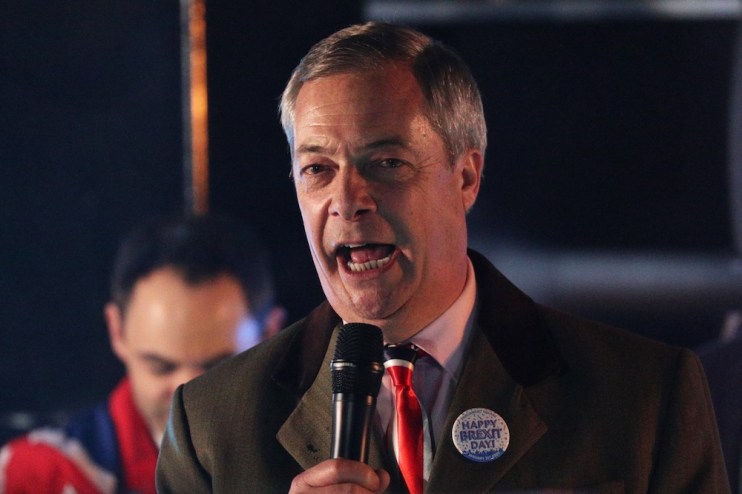Explainer: What’s going on with Farage’s bank account

Coutts, a prestigious private bank owned by Natwest, is under pressure after it emerged that Nigel Farage’s bank account had been closed, ostensibly for his political opinions alone.
The story has caused a furore and, with politicians wading in, it could even spark a set of new rules which would prevent banks ‘debanking’ customers with views they disagree with.
The story so far
Farage revealed a few weeks ago that Coutts had shut his bank account with no explanation. He then approached a further seven banks, all of which rejected his application to open an account.
At first he said the decision to close his accounts could have happened after the banks deemed him a ‘politically exposed person’ or PEP – a person who’s role in public life leaves them exposed to a greater risk of being involved in corruption.
Days later BBC business editor Simon Jack published a story alleging that Farage’s account at Coutts had been closed because the value of his account fell below the required £1m threshold.
However, after submitting a subject access request, it was revealed that Coutts did not close Farage’s account for commercial reasons. In the nearly 40-page statement, Farage pointed to a crucial detail in which the bank said his views “do not align with our values”.
The Telegraph, which published the statement, claimed the BBC report came a day after BBC business editor Simon Jack sat next to Natwest chief executive Dame Alison Rose at a charity dinner.
The response
Coutts’s decision to close Farage’s account for political reasons has sparked interventions from both politicians and regulators.
During a Treasury Committee session, Nikhil Rathi, the the Financial Conduct Authority’s chief executive, said that the watchdog was speaking to Natwest about the matter. He stressed that firms cannot discriminate based on a person’s political views.
Speaking in the House of Commons yesterday, former Brexit secretary David Davis said Coutts’s reasoning was “thinly veiled political discrimination”. He accused the bank of lying to the BBC and that the disclosure of Farage’s private information “ought to jeopardise its banking licence”.
Prime Minister Rishi Sunak also slammed Coutts: “This is wrong. No one should be barred from using basic services for their political views. Free speech is the cornerstone of our democracy.”
According to a report in The Times, ministers are considering making free speech protections a condition of banking.
Under the proposals, which could be announced as early as next week, banks will be required to give an explicit explanation of why they are closing accounts and customers will be given rights of appeal.
Farage praised the potential response. “I think this is one of the swiftest interventions I’ve seen by [a] government for many, many years,” he said. “And I think that’s because this problem of the way banks have been behaving has been building up for years and years and years.”
Private banks like Coutts offer a more personalised service than high street operators.
What did Coutts say?
A Coutts spokesperson said: “We recognise the substantial interest in this case. We cannot comment on the detail given our customer confidentiality obligations. However, it is not Coutts’ policy to close customer accounts solely on the basis of legally held political and personal views.
“Decisions to close an account are not taken lightly and involve a number of factors including commercial viability, reputational considerations, and legal and regulatory requirements.
“We recognise the critical importance of access to banking. When it became clear that our client was unable to secure banking facilities elsewhere, and as he has confirmed publicly, he was offered alternative banking facilities with Natwest. That offer stands,” they continued.
